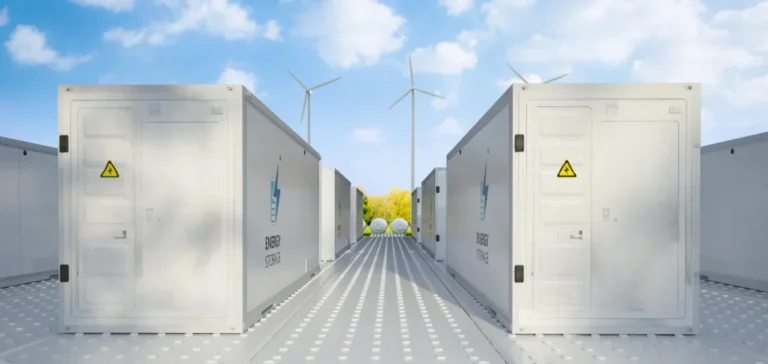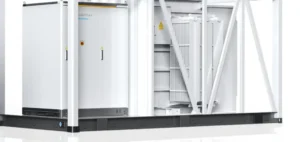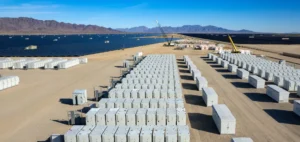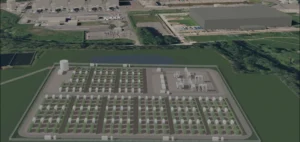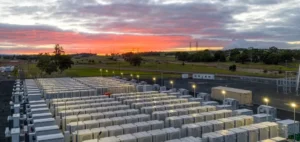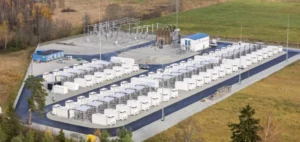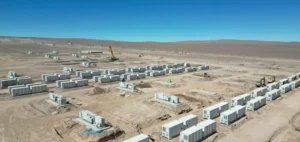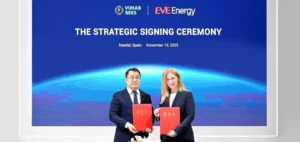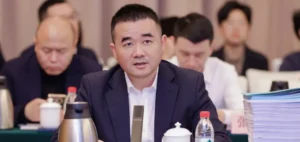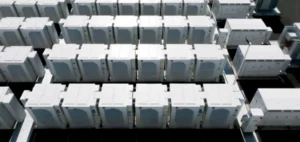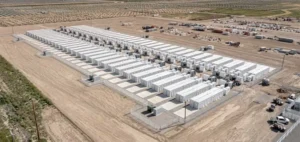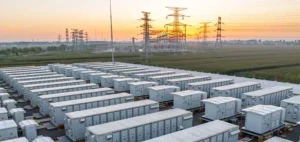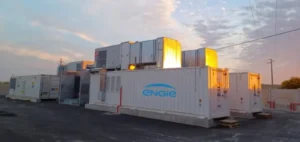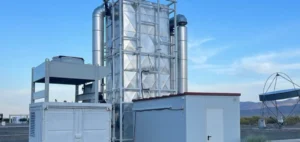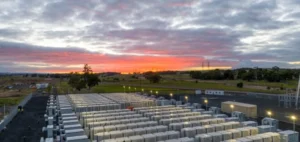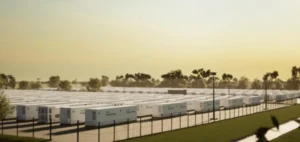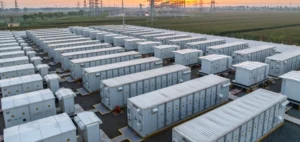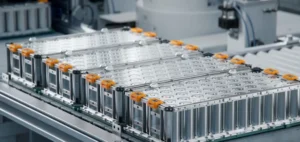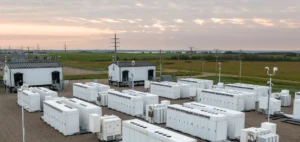The Ignitis Group, specialised in renewable energy, has begun constructing multiple battery energy storage systems (BESS) in Lithuania, representing a combined power of 291 megawatts (MW) and a total storage capacity of 582 megawatt-hours (MWh). These installations will be located near the towns of Kelmė and Mažeikiai, as well as in Kruonis, where a pumped storage hydroelectric power plant operated by Ignitis Gamyba is already located. This project is among the first of this scale to be developed in Lithuania. The total investment amounts to around €130mn ($142mn).
Strategic locations near existing infrastructure
The construction of BESS parks at Kelmė and Mažeikiai will be carried out near wind farms already operated by Ignitis Renewables, a subsidiary of Ignitis Group. The installation located in Kruonis will benefit from the immediate proximity of the pumped storage hydroelectric plant, enabling optimal management of local electrical loads. The choice of these locations aims to ensure better integration of existing capacities and increase the resilience of Lithuania’s national electrical grid.
All three sites are expected to begin commercial operations in 2027, according to the timeline established by the Ignitis Group. The German company Rolls-Royce Solutions GmbH has been selected to supply equipment and provide technical integration services for all concerned facilities.
Enhancing national energy security
These storage systems will help balance electricity supply and demand by storing surplus energy produced during periods of high generation, then releasing it when consumption increases. According to Ignitis Group CEO Darius Maikštėnas, “these systems constitute an essential guarantee for the reliability of the electrical grid, particularly in view of increasing intermittent renewable energy production.”
Moreover, Ignitis specified that the information management and control systems of the three BESS installations will be protected against remote access from countries identified as potentially threatening, in line with Lithuania’s National Security Strategy guidelines.
A proven large-scale technological solution
These systems operate on the same principle as domestic batteries but on a much larger scale. They absorb electricity from the grid and adjacent wind or solar power plants, returning this energy when production levels fall or demand increases significantly. Their ability to respond in real time to network fluctuations is particularly useful during disruptions or sudden variations in weather conditions.
The batteries are designed according to strict safety standards, equipped with fire-prevention devices, and do not generate significant noise disturbances. Regular maintenance ensures optimal operation throughout their entire operational lifecycle.
According to Arvydas Dučinskas, manager at Ignitis, “battery storage systems enable more efficient integration of renewable capacities without compromising electrical grid stability, and now represent an essential component of Lithuania’s energy transition.”


